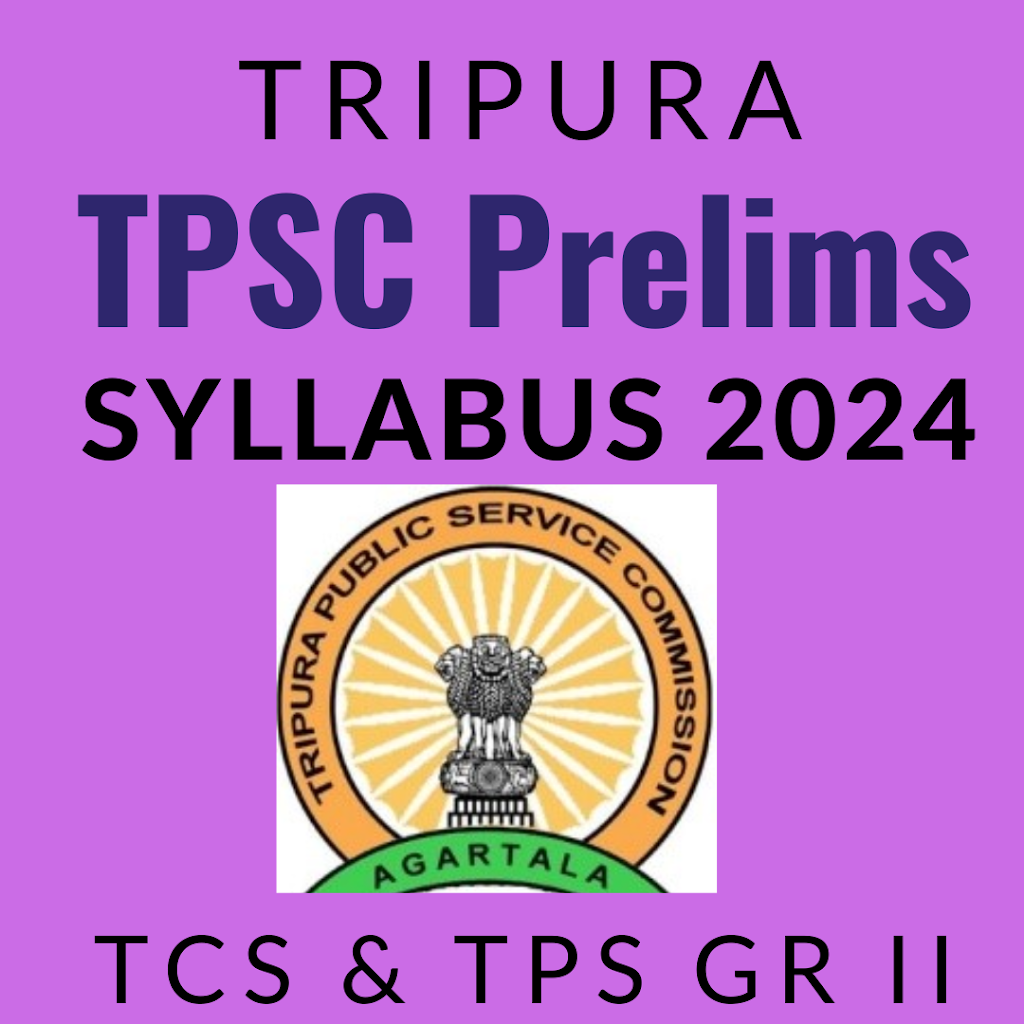Tripura Public Service Commission (TPSC) Exam Syllabus: A Complete Guide
Tripura Public Service Commission (TPSC) exams are conducted for recruitment to various government posts within the state of Tripura. Find the detailed syllabus here.
Table of Contents
- Introduction to TPSC Exam
- TPSC Exam Structure Overview
- Preliminary Examination Syllabus
- Mains Examination Syllabus
- 4.1 Compulsory Papers
- 4.2 Optional Subjects
- Interview (Personality Test)
- Detailed Breakdown of Compulsory Papers
- Optional Subject List and Syllabus
- Preparation Tips for TPSC Exams
- How to Approach TPSC Current Affairs
- TPSC Syllabus for Subject-wise Breakdown
- Recommended Books for TPSC Preparation
- Marking Scheme and Negative Marking
- Online Resources and Study Groups
- Frequently Asked Questions (FAQs)
- Conclusion
1. Introduction to TPSC Exam
The Tripura Public Service Commission (TPSC) conducts various exams annually to recruit eligible candidates for multiple posts within state government departments. Positions such as Tripura Civil Service (TCS), Tripura Police Service (TPS), and other state administrative roles fall under TPSC’s recruitment purview.
2. TPSC Exam Structure Overview
The TPSC Exam consists of three main stages:
- Preliminary Examination: Screening stage with objective questions.
- Mains Examination: Descriptive stage with compulsory and optional papers.
- Interview (Personality Test): Final stage to assess a candidate’s personality and suitability.
3. Preliminary Examination Syllabus
The preliminary examination is primarily a screening process consisting of objective-type questions covering General Studies.
3.1 General Studies Topics
- History, Geography, and Political Science
- Indian Economy and Social Development
- Environmental Ecology and Biodiversity
- Science and Technology
- Reasoning and Analytical Ability
3.2 Importance of Current Affairs
- National and International Events
- Sports, Awards, and Culture
- State-Specific Developments Relevant to Tripura
4. Mains Examination Syllabus
The Mains Examination has multiple papers, including compulsory subjects and an optional subject selected by the candidate.
4.1 Compulsory Papers
- English Language
- Bengali/Kokborok Language (Regional Language)
- General Knowledge & Current Affairs
4.2 Optional Subjects
Candidates can choose from various disciplines, such as History, Geography, Political Science, Economics, and Public Administration, among others.
5. Interview (Personality Test)
The interview is designed to assess the candidate’s personality traits, communication skills, and aptitude for public service.
6. Detailed Breakdown of Compulsory Papers
The compulsory papers cover general and language-based knowledge essential for administrative roles in Tripura.
6.1 English Language
- Essay Writing, Comprehension
- Grammar, Vocabulary, and Sentence Formation
6.2 Bengali/Kokborok Language
- Essay and Composition
- Translation and Grammar
- Language Proficiency Assessment
6.3 General Knowledge & Current Affairs
- Static GK
- National and Regional Current Affairs
- International Developments
7. Optional Subject List and Syllabus
Candidates can choose one optional subject from a list provided by TPSC. Here are some popular choices:
- History
- Geography
- Political Science
- Economics
- Sociology
- Public Administration
8. Preparation Tips for TPSC Exams
8.1 Study Material Suggestions
- Standard textbooks for history, geography, and polity.
- Monthly magazines for current affairs.
8.2 Time Management Strategies
- Setting a realistic timetable.
- Prioritizing high-weightage subjects.
- Regular revision cycles.
9. How to Approach TPSC Current Affairs
Current affairs are crucial for both prelims and mains exams. Key approaches include:
- Daily reading of newspapers.
- Utilizing mobile apps for daily current affairs.
- Focusing on Tripura-related events and issues.
10. TPSC Syllabus for Subject-wise Breakdown
Detailed understanding of each subject’s syllabus is essential. This section provides a topic-wise breakdown of commonly opted subjects like:
- History: Ancient, Medieval, Modern Indian History.
- Geography: Physical Geography, Human Geography.
- Political Science: Indian Constitution, Political Theory.
11. Recommended Books for TPSC Preparation
Here’s a list of some recommended books:
- History: “India’s Struggle for Independence” by Bipan Chandra.
- Geography: “Certificate Physical and Human Geography” by Goh Cheng Leong.
- Polity: “Indian Polity” by M. Laxmikanth.
12. Marking Scheme and Negative Marking
The TPSC exam follows a specific marking scheme, with negative marking applicable in the prelims for incorrect answers.
13. Online Resources and Study Groups
Engaging with online platforms can be helpful for preparation:
- Government exam prep websites.
- YouTube channels and online classes.
- Joining TPSC-focused study groups for group learning.
14. Frequently Asked Questions (FAQs)
Q1: Is there a negative marking in the TPSC Preliminary Exam?
Yes, there is a negative marking for incorrect answers in the prelims.
Q2: Can I choose any language for the language paper?
Candidates need to opt for either Bengali or Kokborok as specified by TPSC guidelines.
Q3: How much time is allocated for the TPSC mains exam?
Each paper typically has a time limit of 3 hours.
Q4: What is the best way to prepare for TPSC General Studies?
Focus on a balanced preparation of current affairs, general science, history, geography, and political science.
Q5: How many optional subjects are allowed in the TPSC Mains?
Candidates are required to choose only one optional subject for the mains.
Q6: Where can I find the latest TPSC exam syllabus?
The latest syllabus can be found on the official TPSC website.
15. Conclusion
The TPSC exam demands a well-rounded preparation strategy covering diverse subjects. Familiarizing yourself with the syllabus, structuring a study plan, and staying updated with current events will be your keys to success. Remember to practice mock tests and previous years’ question papers to sharpen your exam readiness.


Leave a Reply